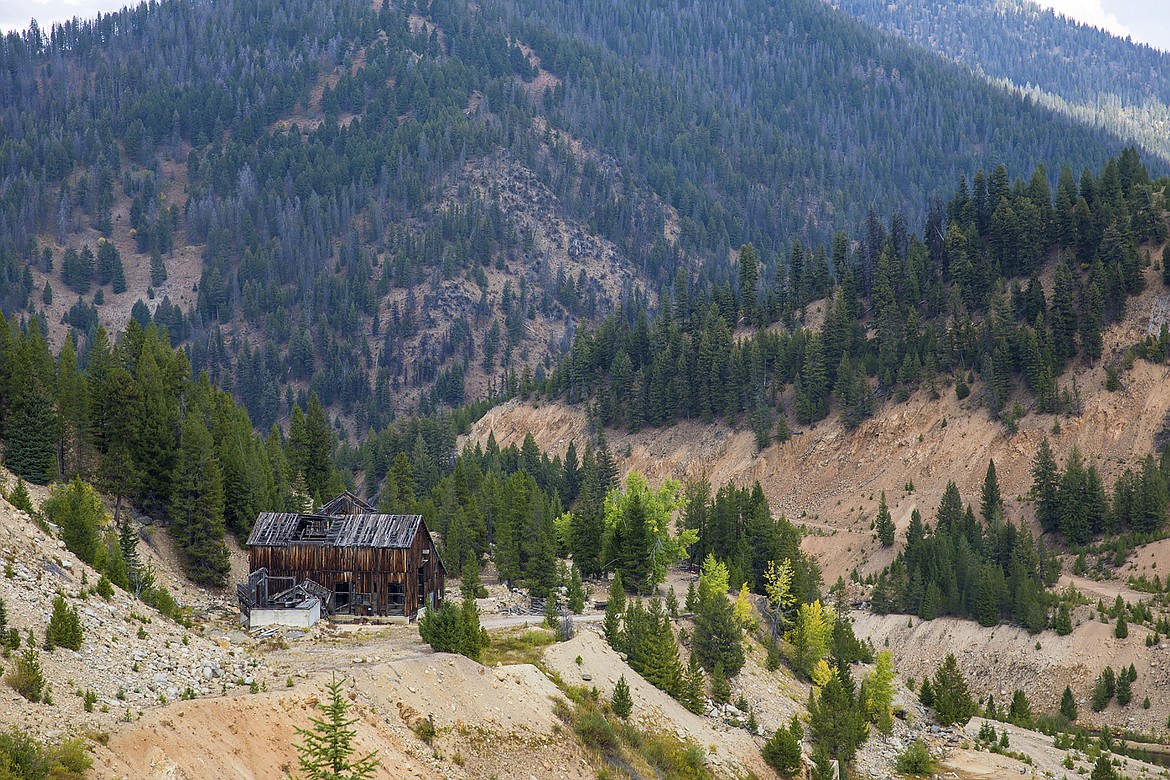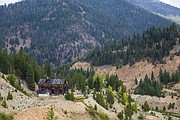U.S. releases draft assessment of Idaho open-pit gold mines
Keith Ridler | Hagadone News Network | UPDATED 5 years, 6 months AGO
BOISE, Idaho (AP) — The U.S. government on Friday released a draft environmental report on the potential effects of three open-pit gold mines in salmon habitat in central Idaho proposed by a Canadian company.
The U.S. Forest Service will take comments for 60 days on the documents involving British Columbia-based Midas Gold’s plan that includes restoration work in the already heavily mined area.
Midas Gold says the area 40 miles east of McCall and near the western edge of the Frank Church-River of No Return Wilderness contains more than 4 million ounces of gold and more than 100 million pounds of antimony. Antimony is used in lead for storage batteries as well as a flame retardant. The company also says the mines will create 500 jobs for up to 25 years.
The project includes about 500 acres (200 hectares) of patented mining claims and 2,900 acres (1,200 hectares) of unpatented claims on the Payette National Forest and Boise National Forest.
Mining in the area dates back more than a century and has resulted in two open pits, including one that has been blocking a salmon spawning stream since the 1930s. The site also has extensive tailings left from mining operations that are the source of elevated levels of arsenic.
Previous mining companies walked away, leaving cleanup to U.S. taxpayers. The U.S. Environmental Protection Agency has spent about $4 million since the 1990s restoring habitat, work that would be mostly removed with new mining.
Midas Gold says its plan includes restoring the area so that fish can move upstream past the mining area.
“We have identified an opportunity to responsibly redevelop and restore a brownfields (polluted) site that was essentially abandoned after more than a century of mining activity," said Midas Gold Idaho CEO Laurel Sayer in a statement. “In the process, we will invest over a billion dollars in Idaho and bring hundreds of family-wage jobs to our rural communities."
But there are also about 80 miles (130 kilometers) of river with good salmon habitat below the abandoned open pit that could be put at risk with new mining, part of the reason the Nez Perce Tribe opposes new mining in the area.
Opponents say the mining area will be greatly expanded, destroying additional habitat for salmon, steelhead and bull trout. They also worry that U.S. taxpayers will get stuck with clean-up costs when mining ends.
Also, internal Forest Service documents obtained by an environmental group last year show the Forest Service allowing Midas Gold to write a key environmental report on the proposed open-pit mines after the Trump administration became involved. The report, called a biological assessment and used in creating the document released Friday, would typically be written by the Forest Service or an independent contractor.
The assessment could have killed the project if it had resulted in habitat restoration work that made the mines economically unfeasible.
“The decision on whether or not to move forward with a mining project of this magnitude should be based on science, not the size of the company’s lobbying budget,” said Pete Dronkers of Earthworks, the group that obtained the internal documents. “We will be analyzing this environmental review carefully to be sure it reflects the scale of possible impacts on water, fish, and other wildlife.”
The document released Friday along with related supporting information totals about 6,000 pages. The draft itself offers five alternatives for mining, ranging from plans put forward by Midas Gold to others with modifications to no new mining at all. The Forest Service, after reviewing comments, will select one of them in a final decision sometime after the comment period ends.
The Idaho Conservation League said that in its initial review of the draft that it had concerns about toxic waste being left behind. It has asked the Forest Service to extend the comment period from 60 to 120 days so it can better evaluate the draft and supporting information.
ARTICLES BY KEITH RIDLER
US to bolster firefighter ranks as wildfires burn year-round
BOISE, Idaho (AP) — U.S. wildfire managers have started shifting from seasonal to full-time firefighting crews to deal with what has become a
US to bolster firefighter ranks as wildfires burn year-round
BOISE, Idaho (AP) — U.S. wildfire managers have started shifting from seasonal to full-time firefighting crews to deal with what has become a
Idaho special session for Texas-type abortion law unlikely
BOISE, Idaho (AP) — Idaho lawmakers being called back to the Statehouse to pass a law similar to one in Texas banning most abortions is not likely, top elected officials said Thursday.



